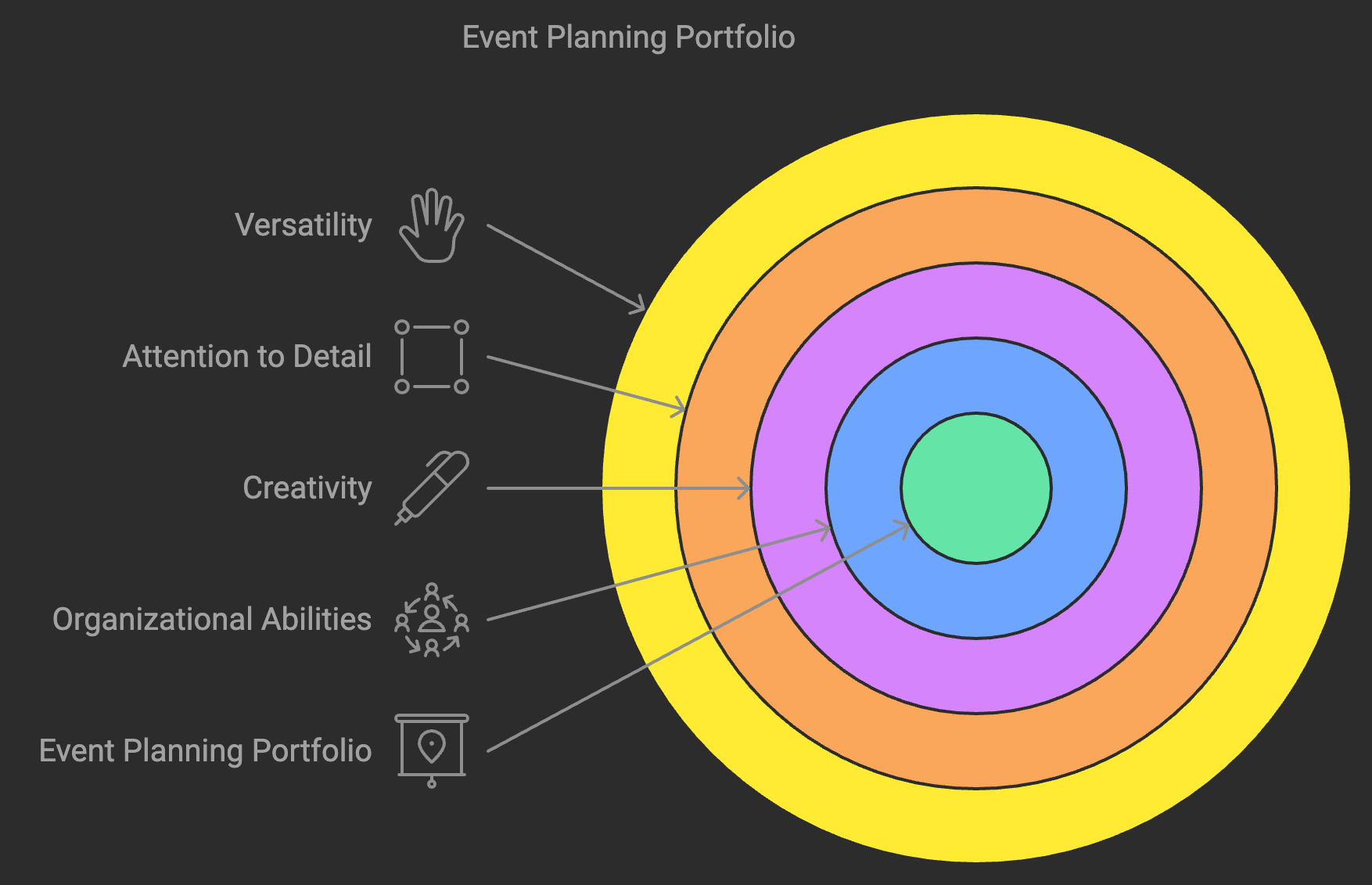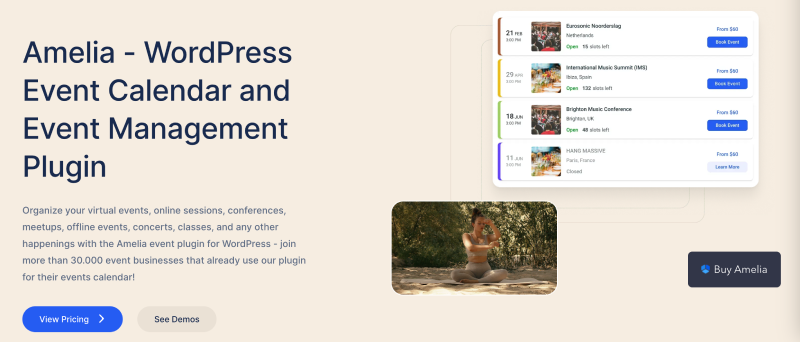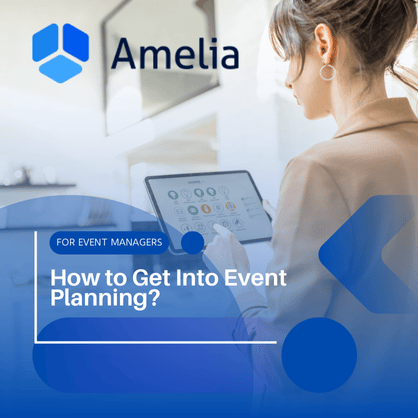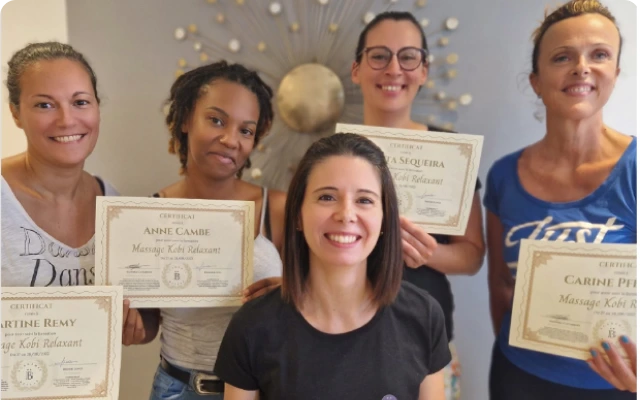Event planning is an exciting and dynamic career path that offers the opportunity to create memorable experiences, connect with a variety of people, and bring unique visions to life.
In this ultimate guide, we’ll walk you through everything you need to know about how to get into event planning. From understanding the role of an event planner to building essential skills, gaining hands-on experience, and navigating your career options, we’ve got you covered.
What Does an Event Planner Do?
An event planner is the mastermind behind the scenes, making sure every aspect of an event runs smoothly. If you want to get into event planning, your primary role is to manage all logistics, from conceptualization to execution, with a focus on creating memorable experiences for clients and attendees. But the responsibilities of an event planner go far beyond just setting up tables and coordinating schedules.
Here are some key tasks an event planner handles:
Client consultation and vision development
The process begins with understanding the client’s vision, goals, and budget. This step is crucial in determining the event’s scale, style, and specific needs. Event planners ask detailed questions to ensure they capture every element the client wants.
Budgeting and financial management
Keeping the event within the client’s budget is one of the most important aspects of the role. Event planners need to manage costs for venues, catering, entertainment, décor, and more, all while delivering high-quality experiences.
Vendor sourcing and negotiation
A successful event relies on the right vendors, including caterers, florists, photographers, and entertainment. Event planners are responsible for finding the best vendors, negotiating contracts, and ensuring they deliver as promised on the event day.
Timeline and scheduling
Creating a detailed event timeline is essential for smooth operations. This includes scheduling everything from setup and guest arrival to event wrap-up. Event planners are experts at multitasking and ensuring every part of the event sticks to the timeline.
On-site event management
On the event day, planners are responsible for ensuring everything runs like clockwork. They oversee setup, manage vendors, troubleshoot any issues, and ensure that the client and guests are satisfied. Their job isn’t over until the last guest leaves and all equipment is cleared from the venue.
Requirements and Certifications to Get Into Event Planning

While formal education isn’t always required to become an event planner, having a solid foundation in certain areas can significantly boost your chances of success in this competitive industry. Event planning is a multifaceted field, and those who pursue specialized education or certifications often have a leg up when starting their careers.
Do you need a degree to become an event planner?
The short answer is no – many successful event planners have entered the industry without a formal degree. However, having a degree in fields such as hospitality management, marketing, business administration, or public relations can provide you with valuable skills and knowledge that directly apply to event planning.
A degree can offer insight into managing budgets, marketing events, building relationships with clients, and handling the various logistical challenges that arise. Additionally, formal education can also help aspiring planners develop a professional network, a key component for breaking into the industry.
Event planning certifications to consider
In addition to degrees, there are several certifications that can help event planners stand out in the job market. These certifications demonstrate your commitment to professional development and provide specific knowledge that may be useful for high-level event planning roles.
- Certified Meeting Professional (CMP): The CMP designation is recognized globally and is one of the most sought-after certifications in the event planning industry. It covers areas such as strategic planning, financial management, site management, and marketing. Earning this certification showcases your ability to plan and execute large-scale meetings and conferences.
- Certified Special Events Professional (CSEP): This certification focuses more on the creative and logistical aspects of planning special events, such as weddings or galas. It’s ideal for planners interested in organizing more personalized, social events.
- Certified Wedding and Event Planner (CWEP): If you’re looking to specialize in wedding planning, the CWEP certification is a great option. It covers everything from designing the event to handling contracts and timelines, and it’s particularly useful for planners who want to focus on weddings and other social events.
- Digital Event Strategist (DES): In today’s increasingly virtual world, understanding how to plan and execute digital or hybrid events is crucial. The DES certification equips planners with the skills necessary to manage virtual platforms, engage online audiences, and run successful online events.
Skills You Need to Get Into Event Planning
Becoming a successful event planner requires more than just creativity and passion. To excel in this field, you need to cultivate a wide range of skills that will enable you to manage multiple aspects of event planning efficiently. Whether you’re organizing a corporate conference or a private wedding, having a strong skill set will help you stand out and ensure every event runs smoothly.
People skills
Event planning is a people-oriented profession, and building strong relationships with clients, vendors, and guests is essential. As an event planner, you’ll need to communicate effectively, listen to your clients’ needs, and work closely with vendors to ensure everything aligns with the client’s vision. Good interpersonal skills will help you establish trust, resolve conflicts, and ensure that everyone involved in the event is satisfied.
Key elements:
- Active listening to understand client expectations.
- Negotiation with vendors to get the best deals and services.
- Conflict resolution to handle last-minute issues with grace.
Organizational skills
Managing multiple events, vendors, deadlines, and details requires top-notch organizational skills. You’ll be responsible for coordinating all aspects of an event, from the budget and guest list to logistics and contingency planning. Successful event planners are meticulous about managing schedules, keeping track of details, and ensuring nothing falls through the cracks.
Key elements:
- Creating and sticking to timelines.
- Managing budgets and expenses efficiently.
- Keeping all event-related details (contracts, itineraries, etc.) organized.
Communication skills
Clear and effective communication is critical in event planning. You’ll need to convey information to clients, vendors, and staff in a way that ensures everyone is on the same page. Whether you’re writing emails, conducting meetings, or giving instructions on the day of the event, strong communication skills will help you avoid misunderstandings and keep things running smoothly.
Key elements:
- Articulating ideas clearly to clients and team members.
- Providing clear instructions and expectations to vendors.
- Handling client feedback and concerns professionally.
Time management
Event planners often juggle multiple tasks at once, and managing time effectively is crucial to success. You’ll need to prioritize tasks, meet deadlines, and ensure that every aspect of the event is completed on time. This includes managing your own time as well as coordinating the schedules of vendors and staff.
Key elements:
- Creating detailed timelines for event preparation and execution.
- Delegating tasks when necessary to stay on schedule.
- Balancing multiple events and projects simultaneously.
Problem-solving
No matter how well an event is planned, unexpected issues are bound to arise. Successful event planners are quick on their feet and excel at finding creative solutions to problems. Whether it’s a vendor canceling at the last minute or bad weather affecting an outdoor event, your ability to think on your feet will make all the difference in how smoothly an event runs.
Key elements:
- Remaining calm under pressure and thinking critically.
- Coming up with backup plans to tackle unforeseen issues.
- Staying resourceful and finding quick solutions in real-time.
Creativity and attention to detail
Event planners must combine creativity with attention to detail to ensure that each event is unique and runs smoothly. Creativity allows you to bring fresh ideas and exciting elements to your events, while attention to detail ensures that every aspect, from the décor to the flow of the event, aligns with the client’s vision.
Key elements:
- Designing innovative themes, décor, and experiences for events.
- Paying attention to the finer details to meet client expectations.
- Ensuring consistency across every element of the event, from start to finish.
Negotiation and budgeting skills
Being able to negotiate with vendors and manage an event’s budget effectively is crucial. Event planners must work within a client’s financial constraints while still delivering a memorable event. This often requires finding the best deals, negotiating contracts, and ensuring every dollar is spent wisely.
Key elements:
- Budget management to balance quality and cost.
- Vendor negotiations to secure favorable contracts and rates.
- Tracking expenses to ensure the event stays within the agreed-upon budget.
Flexibility and adaptability
The ability to adapt to changing circumstances is vital in the event planning industry. Unexpected changes, like weather or client requests, can alter the course of an event. Being flexible enough to pivot and make adjustments will help you navigate any challenges with ease and keep the event on track.
Key elements:
- Adapting to last-minute client requests or changes in the event plan.
- Being open to new ideas or suggestions from clients or vendors.
- Staying calm and flexible when unexpected challenges arise.
Tech-savviness
To get into event planning today you need to be proficient with technology to manage events efficiently. Event management software, event ticketing platforms, virtual planning tools, and social media platforms are integral to modern event planning. Understanding how to leverage these tools can streamline processes, enhance client communication, and improve event outcomes.
Key elements:
- Using event management software to track tasks and manage logistics.
- Utilizing social media and digital platforms for marketing events.
- Staying updated with the latest event tech trends.
Gaining Experience in Event Planning
Breaking into the event planning industry can be challenging without real-world experience. While education and certifications are helpful, hands-on experience is invaluable for building your skills, expanding your network, and developing a professional portfolio.
Volunteering
One of the best ways to get your foot in the door is by volunteering at events. Many organizations, non-profits, and community groups regularly host events and rely on volunteers to assist with planning and execution. Volunteering offers a low-pressure way to gain experience, understand the workflow of events, and build relationships with industry professionals.
Intership
If you’re looking for a more structured learning experience, an internship with an established event planning company can offer invaluable insight into the industry. Interns often assist with vendor coordination, event setup, budgeting, and administrative tasks. By shadowing experienced event planners, you’ll learn how professionals handle the challenges of the job.
Assisting a professional event planner
If an internship or full-time position isn’t available, you could start by assisting an event planner on a freelance basis. Many busy planners need help with event preparation, research, and day-of execution. This type of work will give you firsthand experience while allowing you to observe how planners operate in real-time.
Building Your Event Planning Portfolio

An event planning portfolio is more than just a collection of pretty pictures. It provides prospective clients or employers with evidence of your organizational abilities, creativity, and attention to detail. A strong portfolio demonstrates your versatility across different types of events, your ability to solve problems, and your commitment to delivering results.
How to create a portfolio?
When creating your portfolio, it’s essential to present a diverse range of events that reflect your skills and style. You should aim to showcase not just the final results, but also the process and problem-solving aspects behind each event.
Here are some key elements to include:
- Event photos: High-quality, professional photos are critical for visually showcasing your work. Include images that highlight various aspects of the event, such as décor, setup, venue, entertainment, and guest experiences.
- Event descriptions: Along with photos, provide a detailed description of each event. Explain the event’s objectives, the client’s vision, and how you brought that vision to life. This can include challenges you faced and how you overcame them, as well as your specific role in planning and executing the event.
- Testimonials: Positive feedback from clients adds credibility to your portfolio. Include quotes from satisfied clients that speak to your professionalism, attention to detail, and ability to deliver a memorable event.
- Event stats: For larger events, include statistics to demonstrate success. For example, mention the number of attendees, the overall budget, or any impressive outcomes like increased ticket sales, funds raised, or media coverage.
- Press mentions: If any of your events were featured in the media or recognized by industry publications, include these mentions in your portfolio. Press features add extra legitimacy to your work.
Networking and Building Industry Connections
In the event planning industry, who you know can be just as important as what you know. Networking is a critical part of establishing yourself as an event planner, allowing you to build relationships with clients, vendors, and other professionals who can help you grow your career. Whether you’re attending industry events or connecting with people online, a strong network will open doors and provide opportunities you may not have otherwise.
Attend industry events and conferences
One of the best ways to network is by attending events that cater to professionals in the event planning industry. Conferences, trade shows, and networking events offer a platform to meet key players, learn about the latest trends, and discover new opportunities. These gatherings allow you to expand your professional circle and meet potential clients, vendors, and mentors.
Popular industry events to consider:
- The Special Event (TSE): This annual conference brings together event planners from around the world and offers workshops, keynote speakers, and networking opportunities.
- IMEX America: Focused on the meetings and events industry, IMEX is a leading global event that features networking, education, and business development opportunities.
- BizBash Live: Known for its innovative sessions and networking events, BizBash Live is ideal for planners looking to connect with vendors, venues, and other professionals.
Benefits of attending industry events:
- Build relationships with potential clients and vendors.
- Stay informed on the latest event planning trends and tools.
- Gain inspiration from speakers and experienced planners.
Network with vendors and venues
Building strong relationships with vendors and venues is essential for any event planner. Caterers, photographers, florists, DJs, and venue managers all play critical roles in the success of an event. Establishing good rapport with these professionals can lead to better service, favorable pricing, and smoother event execution.
Steps to build vendor and venue relationships:
- Schedule meetings or coffee chats with vendors to introduce yourself and learn about their services.
- Attend venue tours and open houses to familiarize yourself with local spaces.
- Collaborate with vendors and venues regularly to build a long-term partnership.
Benefits of vendor and venue relationships:
- Gain preferred pricing and services for your clients.
- Access to exclusive or in-demand venues and vendor services.
- Establish a trusted network that ensures seamless event execution.
Leverage social media for networking
Social media platforms are powerful tools for networking and building your personal brand in the event planning industry. Whether it’s showcasing your work, connecting with peers, or engaging with potential clients, social media can help you expand your reach and establish yourself as a thought leader in the field.
Social media platforms to use:
- LinkedIn: Connect with industry professionals, join event planning groups, and share your expertise by posting articles or participating in discussions.
- Instagram: Showcase your event designs, décor ideas, and behind-the-scenes event work through visually engaging content.
- Facebook: Join event planning groups where you can network, ask questions, and share tips with other professionals.
Tips for networking on social media:
- Share valuable insights or tips on event planning to position yourself as a knowledgeable resource.
- Engage with other professionals by commenting on their posts and offering support.
- Use relevant hashtags like #EventPlanner, #EventProfs, or #EventPlanning to increase your visibility.
Starting Your Own Event Planning Business
If you’re passionate about creating memorable experiences and want to turn event planning into a full-time career, starting your own event planning business can be a fulfilling and profitable venture. While working for an event planning company offers stability, owning your own business allows you more creative freedom, flexibility, and the potential to earn more. However, like any business, it requires thorough planning and dedication.
Legal steps:
- Register your business: Decide on a business structure—sole proprietorship, LLC, or corporation—and register your event planning company with the appropriate local and federal authorities. An LLC is often preferred as it offers personal liability protection without the complexity of a corporation.
- Obtain licenses and permits: Depending on your location, you may need specific licenses or permits to operate an event planning business. Check with your local government to ensure you meet all the legal requirements.
- Secure insurance: Event planning can involve many risks, such as property damage or injuries at an event. Protect your business with liability insurance, and if you hire employees, consider workers’ compensation as well.
Financial steps:
- Create a business plan: Outline your services, target market, and event pricing structure. A detailed event planning business plan will help guide your strategy and can be essential if you plan to seek funding.
- Set up a business bank account: Keep your personal and business finances separate by opening a business bank account. This will also help you track your income, expenses, and taxes.
- Track your finances: Invest in accounting software or hire a bookkeeper to manage your finances. This will help you stay organized, especially as you start dealing with deposits, vendor payments, and taxes.
Branding steps:
- Choose a business name: Your business name should reflect your style and niche. Make sure it’s unique and easy to remember. Check to see if the domain name is available if you plan to have a website.
- Create a logo and brand identity: A strong visual identity helps your business stand out. Hire a graphic designer to create a professional logo, business cards, and brand materials that align with your company’s mission and target market.
Leveraging Technology for Event Planning Success

As we’ve mentioned, the right event management software can significantly enhance your efficiency, allowing you to focus on the creative aspects of planning while managing the logistics seamlessly.
Key features of event management software:
- Registration and ticketing: Simplify the registration process with online forms, customizable ticketing options, and secure payment processing.
- Guest management: Keep track of rsvps, dietary restrictions, and special requests easily, ensuring that no detail is overlooked.
- Scheduling and timelines: Create and manage event timelines, set reminders, and assign tasks to team members to ensure everything stays on track.
- Communication tools: Facilitate seamless communication between you, your clients, and vendors, keeping everyone informed and aligned.
One of the leading platforms in the event management plugin space is Amelia. This powerful tool offers a suite of features designed to streamline event planning and enhance client experiences. What do you get with Amelia?
- User-friendly interface: Amelia’s intuitive design makes it easy for both planners and clients to navigate, reducing the learning curve and making event management accessible to everyone.
- Comprehensive event management: From initial planning stages to post-event analysis, Amelia covers all aspects of event management, including scheduling, ticket sales, and customer communications.
- Automated notifications: Stay organized and informed with automated email notifications for confirmations, reminders, and follow-ups, ensuring no one misses important updates.
- Customizable options: Tailor the platform to suit your specific event needs, whether you’re planning corporate conferences, weddings, or social gatherings.
Final Thoughts on Getting Into Event Planning
Breaking into the event planning industry can be a rewarding and fulfilling journey. By developing the right skills, gaining hands-on experience, and building a network of industry contacts, you can carve out a successful career in event planning. Whether you decide to work for an established company or start your own event planning business, staying organized, creative, and adaptable will be key to your success.
The path to becoming an event planner might come with challenges, but with determination and a passion for creating unforgettable experiences, you can thrive in this dynamic field. As you grow in your career, always continue learning, embracing new trends, and leveraging technology to stay ahead of the curve.
With the right mindset and preparation, you can transform your dream of becoming an event planner into a reality. Now that you have a complete guide on how to get into event planning, it’s time to take the next steps toward building your exciting new career!

